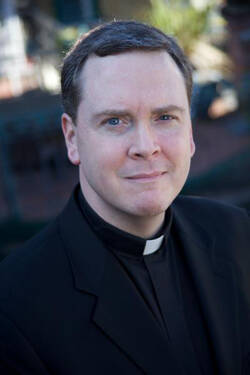I never met Andrew Greeley, the Chicago priest and prolific author who died on May 30 at age 85, but like many people, I felt as if I knew him. His legendary literary output—more than 70 scholarly books, 66 novels and thousands of lectures—made him a constant presence in my life and in the lives of more than a million others. He was devout, smart, erudite and, by most accounts, occasionally brash. He was undoubtedly one of the leading figures in the postconciliar U.S. church, a man who not only documented the sociological effects of the council, but also accompanied us through them as a priest and fellow pilgrim. “I wouldn’t say the world is my parish, but my readers are my parish,” Father Greeley once remarked. “And especially the readers that write to me. They’re my parish. And it’s a responsibility that I enjoy.”
Father Greeley’s association with America began in the early 1960s when Thurston N. Davis, S.J., then editor in chief, received a phone call from Jack Egan, an influential Chicago priest. Monsignor Egan was calling to tell Father Davis about a young parish priest who had just finished his doctorate in sociology. “You should encourage him to write,” said Egan. Neither Davis nor Egan recognized that they were opening a literary floodgate whose waters would reshape the landscape of the American church. During the ensuing five decades, Father Greeley published more than 50 articles in America, ranging from “Myths and Fads in American Catholic Education” in 1966 to “Whatever Happened to Ireland?” in 2007. In between, his lively prose and trenchant analysis delighted, inspired and challenged our readers. In 2006 he received the Campion Award from America. He was a sure and constant friend of this magazine; he is already missed.
This issue of America is a fitting tribute of sorts. The two principal contributors, Stephen Bullivant and Kaya Oakes, confront the challenge of Christian faith in an increasingly skeptical age, the former as a theologian, the latter as an active parishioner and friend of “nones.” Andrew Greeley, one suspects, would have liked that. He once said that the “only kind of acceptable evangelization is the evangelization of good example.” Bullivant and Oakes are good examples of modern evangelists, men and women at the busy and messy intersection of the church and the modern world. Father Greeley spent his life there, exhorting us to stop and to listen to one another, especially the next generation. Kaya Oakes’s comment about young Americans who question their faith sounds very much like something Father Greeley might have said: “Catholics—and believers from any faith who scorn and judge those who depart from faith to examine their conscience about not just what they believe, but why they believe it—might do well to actually listen to what these young people have to say.”
Elsewhere in this issue Nicholas P. Cafardi reviews Mortal Sins: Sex, Crime and the Era of Catholic Scandal, a new book about the sexual abuse crisis in the United States. The book, Professor Cafardi writes, “is pretty much about what the church got wrong, not what it got right.” Father Greeley would have agreed that the church got a lot wrong during the the last 50 years. But he would be quick to add that the church got a lot right too. And perhaps that is Father Greeley’s lasting achievement: through the ups and downs of five turbulent decades—an ecumenical council, the encyclical “Humanae Vitae,” the end of the cold war, the sexual abuse crisis—he never gave in to cynicism, as tempting as it might have been. I didn’t always agree with Father Greeley (few did), but I admired this about him—his irrepressible Christian optimism. “We are born with two incurable diseases,” he once said: “Life, from which we die, and hope, which says maybe death isn’t the end.” Matt Malone, S.J.








